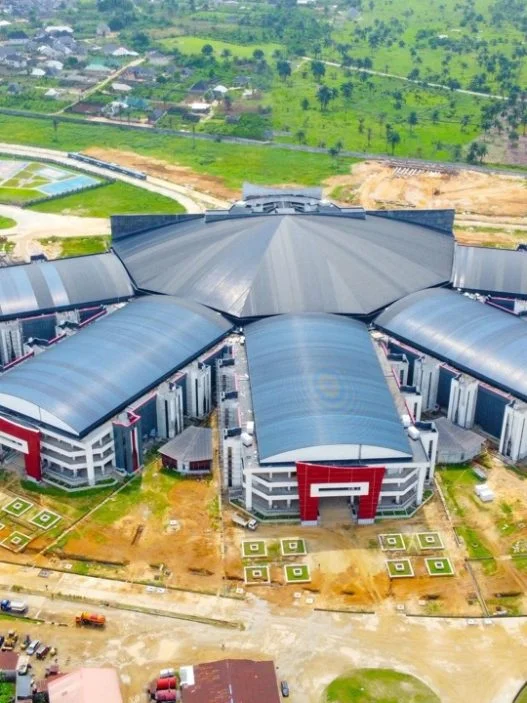One of the smartest financial moves you can make is buying land as an investment. unlike many other assets, land does not depreciate in value, and this makes it a reliable choice for long-term wealth creation. When you invest in land, you are purchasing a tangible asset that creates many opportunities for profit, it could be through resale, leasing, or development.
What is Land Investment?
Land investment means buying, owning, and managing land to make money through its increasing value, renting it out, or developing it in the future.
Wealthy individuals trust real estate investing, with 77% considering it key to to grow their money. Because of the high demand for land, land prices typically increase by 5-10% every year.
In this article, we will expose 12 reasons why buying land as an investment is a great idea and how it can benefit you in various ways. From appreciating value to flexibility in use, you’ll understand why land is an investment worth considering.
Twelve Reasons Why Buying Land as an Investment Is a Great Decision
1. Land Increases in Value Over Time
One of the main reasons of buying land as an investment is its potential for appreciation. Unlike cars or other depreciating assets, land usually increases in value over the years. This is especially true if the land is in a strategic location with future development prospects. As cities grow and more people seek space for residential and commercial use, the demand for land increases, driving its value up.
2. You Don’t Need To Maintain It
Unlike houses, which require regular maintenance like painting, plumbing, and electrical work, land doesn’t demand any such expenses. This means fewer costs associated with keeping it in good shape. Additionally, you won’t have to deal with issues like tenant management or property repairs, making land a more hands-off investment compared to owning a house.
3. Land is a Tangible (Physical) Asset
Owning land gives you a sense of ownership over something real and visible. It’s not like stocks or bonds, which can seem intangible. Land is there, and you can see it, use it, or build on it anytime you want. It also means that you don’t need to worry about losing your investment overnight as you might with more volatile financial assets.
4. It is Flexible to Use
When you buy land, you have multiple options on how to utilize it. You can develop it into residential homes, and commercial buildings, or even use it for agricultural purposes. You could also lease it out or simply hold onto it until it appreciates. This flexibility makes land a versatile investment, unlike other assets that are limited in scope.
5. Lower Risk Compared to Other Investments
Buying land as an investment typically involves lower risk than other investment types like stocks or cryptocurrencies. Land value doesn’t fluctuate as wildly, making it a safer bet. Even during economic downturns, the value of land tends to hold steady. So, if you’re looking for a stable investment with minimal risk, land might be your best option.
6. Long-Term Returns
While land might not offer instant returns, it’s a solid option for long-term gains. As time goes on, the value of the land can significantly increase, providing you with a high return on investment (ROI). For people looking to build generational wealth, buying land is one of the best decisions you can make.
7. No Depreciation
Land doesn’t wear out or need replacement like machinery, cars, or even buildings. Since it’s not subject to wear and tear, its value remains intact or increases. This means there is no depreciation, making it an excellent asset to hold onto.
8. Potential for Development
If you’re considering venturing into real estate, land gives you the perfect opportunity to develop properties that can generate rental income or serve as commercial establishments. This is why many real estate developers seek out land in prime locations they know the potential returns can be immense once the property is developed.
9. Easy to Buy and Hold
Purchasing land is usually simpler than buying a home or other property types. There are fewer legal complications and no need for costly renovations. When making a purchase, understanding the Contract of Sales vs. Deed of Assignment is crucial to ensure the proper transfer of ownership, but once that’s sorted, holding onto land is easy.
10. Can Be Used as Collateral
Owning land gives you a strong asset that can be used as collateral for loans. This means you have access to capital for other investments without having to sell your land. It’s a financial tool that provides leverage when needed.
11. Affordable to Start
In many cases, buying land is more affordable than purchasing a house. You avoid the additional costs of construction and renovations. For first-time investors, this makes land a more accessible entry point into the property market.
12. Ideal for Future Projects
If you’re uncertain about what to do with your land right now, that’s okay. Land can be held indefinitely without losing value. When you finally decide to build, lease, or sell, you’ll likely find that it has appreciated significantly. This makes land an ideal investment for future projects you may want to pursue.
Benefits of Investing Land vs Stocks
Land
Buying land as an investment has one major advantage which is the potential for long-term appreciation in value. As the population grows and urbanization increases, demand for land rises, driving up property values.
Compared to investing in stocks, land investment provides a tangible asset that can generate passive income through rental or lease options. However, investing in land also comes with unique challenges in Nigeria. Some of these include:
Complex land ownership laws
Managing risks associated with land disputes
Addressing infrastructure deficiencies, such as access roads and utilities
Environmental concerns, like flooding or pollution
Despite these challenges, many investors find land investment attractive due to its potential.
Stock
In contrast, investing in stocks offers liquidity, dividend income, and potential for rapid growth. However, stock prices can fluctuate wildly, and investors face risks like market volatility and company-specific challenges.
When comparing land investment to stocks, consider:
Land provides a tangible asset, while stocks represent ownership in companies
Land values tend to appreciate over time, whereas stock prices can fluctuate
Land investment requires significant upfront capital, whereas stock investment can start with smaller amounts
To illustrate, consider this example:
Investing ₦10 million in Nigerian stocks might yield 10-15% annual returns, but comes with market risks. Meanwhile, investing ₦10 million in land could generate 5-10% annual appreciation, with potential for rental income.
5 Types Land To Invest In
- Residential Land
Ideal for building homes, apartments, or estates. High demand in urban areas. -
Commercial Land
Suitable for offices, shopping centers, hotels, or restaurants. Located in business districts. -
Industrial Land
Used for factories, warehouses, logistics, or manufacturing. Often located near transportation hubs. -
Agricultural Land
For farming, livestock, or orchards. Can generate rental income or produce crops. -
Recreational Land
Used for tourism, resorts, or leisure activities. Scenic areas, beaches, or mountains.
Pros and Cons of Investing in Land in Nigeria
Pros of Investing in Land in Nigeria
Investing in land in Nigeria offers potential for long-term capital appreciation, rental income, and diversification of investment portfolios. Nigeria’s growing population and urbanization drive demand for land, making it a lucrative investment. Strategic land investment can provide passive income, security, and a tangible asset.
Cons of Investing in Land in Nigeria
Buying land as an investment poses risks such as fraudulent land deals, conflicting ownership claims, and regulatory complexities. Land disputes, encroachment, and insecurity can also lead to significant financial losses. Additionally, inadequate infrastructure, bureaucratic processes, and environmental concerns can hinder land development.
Conclusion
Investing in land is not all about putting your money in a physical space; it’s about investing in your future with a safe and appreciating asset. Buying land as an investment can offer multiple benefits without the complications of other real estate properties.
So it is clear that land offers lower risks, fewer expenses, and greater potential returns. So, if you’ve been wondering, Is buying land a good investment? The answer is a resounding yes.
FAQ
1. Is buying land still a good investment?
Yes, buying land is still a good investment. Land tends to appreciate over time and can provide a solid return on investment with lower risks compared to other assets.
2. How can I invest in land and make money?
You can invest in land by buying and holding it, renting it out, or selling it for a profit later. These methods can help you generate income while the land appreciates in value over time.
3. Is buying land in a rural area a good investment?
Yes, buying land in rural areas can be a good investment. Rural land often has lower prices and higher growth potential due to increased demand for space outside urban areas.
Get the best of Real Estate delivered straight to your inbox weekly.
Real Estate updates the way you want it.




















